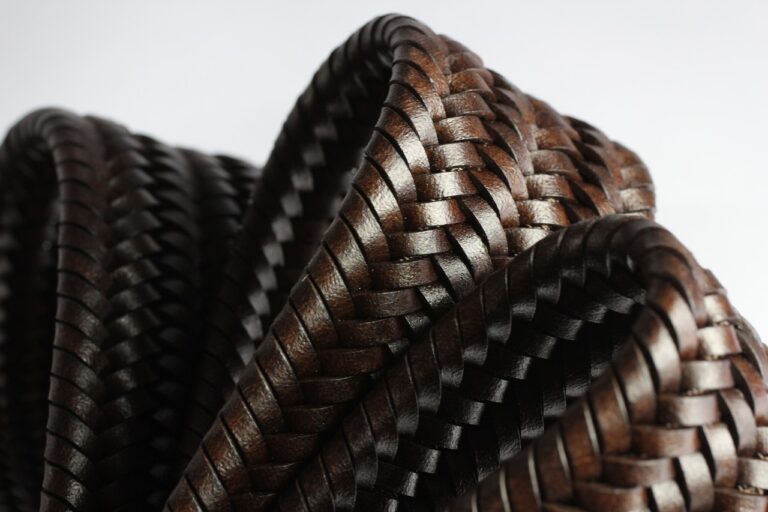Sustainable Materials in Shoe Manufacturing
all panel mahadev, mahadev book login, allpanel login:Sustainable Materials in Shoe Manufacturing
Have you ever stopped to think about what goes into making your favorite pair of shoes? From the design process to the materials used, the shoe manufacturing industry has a significant impact on the environment. But what if there was a way to create stylish and durable shoes without harming the planet? That’s where sustainable materials come into play.
Sustainable materials in shoe manufacturing are becoming increasingly popular as consumers become more environmentally conscious. These materials are sourced and produced in a way that minimizes the negative impact on the environment while still delivering high-quality products. In this article, we will explore the benefits of using sustainable materials in shoe manufacturing and take a closer look at some of the most commonly used options.
Reducing Carbon Footprint
One of the key benefits of using sustainable materials in shoe manufacturing is the reduction of carbon footprint. Traditional shoe manufacturing processes often rely on fossil fuels and other non-renewable resources, leading to increased greenhouse gas emissions. By using sustainable materials such as organic cotton, hemp, or recycled polyester, shoe companies can significantly reduce their carbon footprint and help combat climate change.
Promoting Ethical Practices
Sustainable materials go hand in hand with ethical practices in the shoe manufacturing industry. Many sustainable materials are sourced from suppliers who prioritize fair labor practices and environmental stewardship. By choosing to work with these suppliers, shoe companies can ensure that their products are made ethically and without exploitation of workers or the environment.
Durability and Quality
Contrary to popular belief, sustainable materials are not only good for the planet but also for the consumer. Many sustainable materials, such as cork, bamboo, and recycled rubber, are known for their durability and longevity. Shoes made from these materials are often of higher quality and can last longer than traditional shoes, ultimately reducing the need for frequent replacements.
Biodegradability
Another important aspect of sustainable materials in shoe manufacturing is their biodegradability. Many traditional shoe materials, such as synthetic plastics and petroleum-based rubbers, take hundreds of years to break down in landfills. In contrast, sustainable materials like cork, wool, and natural rubber are biodegradable, meaning they can decompose naturally without harming the environment.
Commonly Used Sustainable Materials
There are a wide variety of sustainable materials used in shoe manufacturing, each with its unique benefits and characteristics. Some of the most commonly used sustainable materials include:
1. Organic Cotton: Grown without synthetic pesticides or fertilizers, organic cotton is a renewable and biodegradable material that is gentle on the environment.
2. Hemp: Hemp is a versatile plant that requires minimal water and pesticides to grow, making it an eco-friendly alternative to traditional shoe materials.
3. Recycled Polyester: Made from recycled plastic bottles, recycled polyester helps reduce waste and conserve natural resources.
4. Cork: Harvested from the bark of cork oak trees, cork is a sustainable and lightweight material that is both durable and water-resistant.
5. Bamboo: Bamboo is a fast-growing and renewable resource that is used to create breathable and antimicrobial shoe materials.
FAQs
1. Are shoes made from sustainable materials more expensive?
While shoes made from sustainable materials may have a slightly higher price tag, they are often of higher quality and can last longer than traditional shoes. In the long run, investing in sustainable shoes can save you money by reducing the need for frequent replacements.
2. How can I tell if a shoe is made from sustainable materials?
Many shoe companies now provide information about the materials used in their products on their website or product packaging. Look for shoes made from organic cotton, hemp, recycled materials, or other sustainable options.
3. Are sustainable materials as durable as traditional shoe materials?
Yes, many sustainable materials are known for their durability and longevity. Shoes made from sustainable materials can be just as durable, if not more so, than those made from traditional materials.
4. Can sustainable materials be recycled or composted?
Yes, many sustainable materials used in shoe manufacturing, such as cork, wool, and natural rubber, are biodegradable and can be recycled or composted at the end of their lifecycle.
Conclusion
Sustainable materials in shoe manufacturing offer a viable solution to reducing the environmental impact of the fashion industry. By choosing shoes made from organic cotton, hemp, recycled materials, and other sustainable options, you can support ethical practices and help protect the planet. So next time you’re in the market for a new pair of shoes, consider opting for sustainable materials and take a step towards a greener future.







